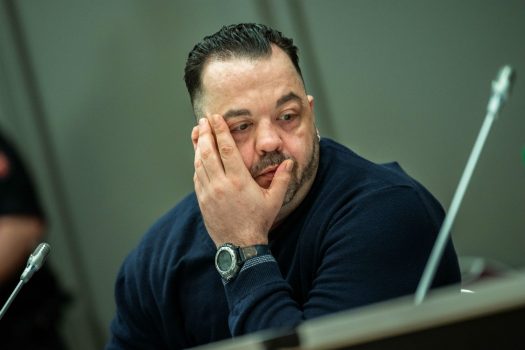 A former German nurse, Niels Högel has been convicted of murdering 85 patients at two hospitals in northern Germany and handed a life sentence.
A former German nurse, Niels Högel has been convicted of murdering 85 patients at two hospitals in northern Germany and handed a life sentence.
Delivering the sentence, Judge Sebastian Buehrmann described Niels Högel’s killing spree as incomprehensible, expressing regret that the court had not been able to ‘lift the fog’ for many grieving relatives of the victims.
Högel, who is believed to be the most prolific killer in Germany’s modern history and already serving life for two murders administered lethal doses of heart medication to people in his care between 1999 and 2005.
Prosecutors said he attacked patients in order to impress his colleagues by subsequently trying to revive them.
A former colleague told the German newspaper, Bild that Högel was nicknamed ‘resuscitation Rambo’ because of the way he pushed everyone else aside when patients needed to be resuscitated.
On the last day of his trial, the 42-year-old Högel asked the families of his victims to forgive him for his horrible acts.
“I would like to sincerely apologize for everything I did to you over the course of years,” he said.
Högel had been accused of murdering 100 patients in the northern cities of Delmenhorst and Oldenburg but the German Police believe he may have killed far more as the cremation of his victims’ bodies had destroyed any possible evidence.
Högel’s killing spree was brought to an end in 2005 when he was caught in the act of administering unprescribed medication to a patient in Delmenhorst.
He was subsequently sentenced to seven years for attempted murder in 2008 but the families of his other suspected victims pressed for a further investigation. At a second trial which ended in 2015 he was jailed for life for two murders and two attempted murders.
However, during that trial he confessed to a psychiatrist that he had killed up to 30 people.
Investigators then widened the investigation, exhuming 130 former patients and looking for evidence of medication which could have triggered cardiac arrest. They also thoroughly went through the records in the hospitals he worked at.
During the investigations, it was discovered that records at the Oldenburg hospital showed that the rates of deaths and resuscitations more than doubled when Högel was on shift.

AstraZeneca Initiates Global Withdrawal Of COVID-19 Vaccines
Putin Sworn In, Urges West To Choose Cooperation Or Confrontation
Xi Jinping Seeks European Allies Amid Skepticism And Trade Tensions
ByteDance Refuses TikTok Sale Despite US Pressure, Plans Legal Challenge